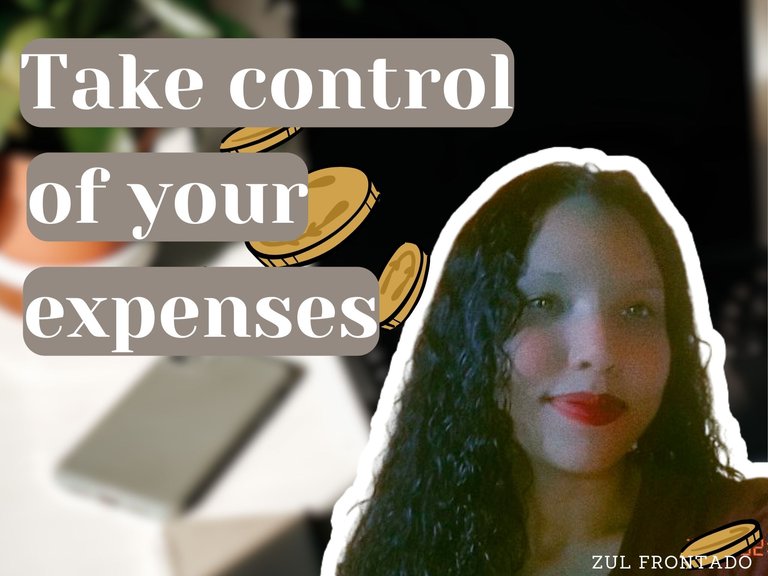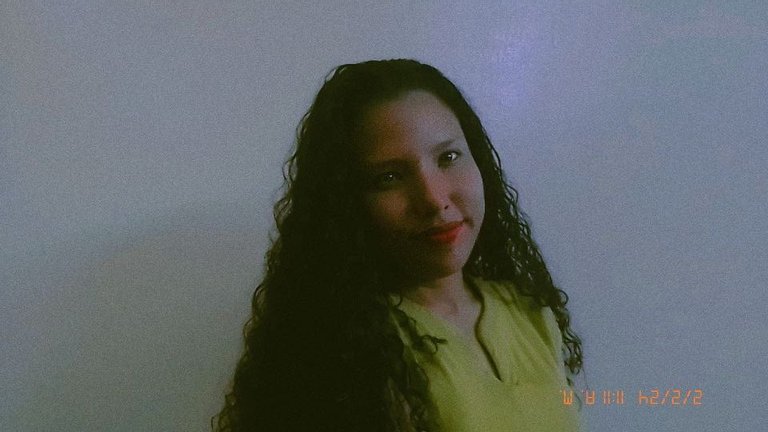
Cover made in Canva, based on free resources available in the app and a photo of my face
Hello, dear hiver!❤️
We live in a capitalist world, where the word “pay” is part of our daily lives. Every time, new “needs” emerge, which are nothing more than media strategies, which brainwash us under the condition of being indispensable for life. Of course, as human beings we love comfort, so we take them without thinking.
However, do you know how much you spend every day in your life?
This is an important question when talking about personal finances, because if we do not know our expenses, it is difficult for us to have quality of life.
You might think that this only applies to people with a tight budget, however, taking into account the expenses of the month is relevant to all social classes, because with this we can optimally manage our money.

"The expenses drown me"

When our personal finances are a disaster, we see how every day there are more things to pay than income.
It has happened to me, and although I live in a country where the majority of spending is on food, it is still quite useful to know where my money is going.
Control of your finances should never be left aside, regardless of the socio-economic situation of the country where you live.
So I created, a personal record in Microsoft Excel. Easy to use for anyone, even if you don't know anything about Excel. I'm keeping my finances for the month there, so I'm sharing it with you on Ko-Fi.
Download your template in English here
Download your template in Spanish here
Attach it to the Ko-Fi platform, where you can offer digital products or services, earning money with them, or simply receiving tips from people who want to support your work. I find it an interesting tool, so I will be using it more often.
You can customize this as you wish. I like to use neutral colors that don't strain the eyes, and keep things as simple and easy to use as possible. Because let's be honest, sometimes excess data makes us avoid keeping track.
This is one of the reasons why people decide not to account for their finances. They find it tedious, and even boring.
But, when we have everything in order, we can see the various leaks of money in our accounts.

Why do I want to know how much I spend?
This is a good question, because we are not aware of what comes out of the accounts until we start doing the math.
We can see...
- What expenses are unnecessary?
- What should we pay more attention to?
- Why do we have little money at the end of the month?
- How much do we have for investment and savings?

Innecesary expenses
Each person knows his needs, and also his weaknesses. Mine is sweets, spending on sweets was a bit exaggerated. Under the excuse of "I deserve it", I ended up spending more than I should.
I also realized that buying food every day is more expensive. On the other hand, making purchases every 15 days reduces some extra expenses caused by inflation.
The price of oil rises and falls, and the value of the dollar in my country, Venezuela, devalues daily, so Venezuelans must save in dollars or cryptocurrencies, because the local currency (the Bolívar) has a low value.
When taking into account the socio-economic factors of the country where you live, you must take some measures so that it does not consume your personal finances in the process.
To the 15-day purchase of food, we can add another strategy, buying some essential products in bulk, such as half a bale of rice, spaghetti, corn flour or wheat flour. These are the ones that are consumed the most at home, and are cheaper wholesale.
This way, by recording everything in a notebook or, as in my case, in a Microsoft Excel document, I can know where I spend the most money. To do this, it is also good to know market prices, with this you can generate strategies to reduce expenses.

What do you need to pay more attention to?
Something that happened to me the first few months when I contracted the fiber optic Internet service is that at the end of the month I did not have the money to pay for it.
My expenses exceeded my income, I don't know what strange magic I did to pay, but I barely managed it. All this is synonymous with lack of organization.
I didn't plan my expenses for the month. Which is important to know how much extra money we have left, and avoids cutting off services, or, worst of all, sleeping on the street. Therefore, we must pay attention to the essential expenses that allow our survival, but above all, not leave them for later because in some cases we compromise our health. These expenses are:
- Housing. In case you pay rent, or services such as water and electricity. It is the place where you live, or, where your family is. Sleeping on the street is not pleasant, in addition to being dangerous, and not having services can prevent you from cooking, keeping your home clean, and even yourself.
- Food. We all spend even exaggerated amounts on food because we like to eat delicious food. Me too, except that with these cats we have to prioritize those of primary need. With this we ensure we have the foods for our balanced diet.
- Transportation. If you pay for transportation, or if you have a car, bicycle, or others, the expenses related to it such as gasoline, spare parts, repairs, or tickets are calculated here.
- Leisure. Life is boring and meaningless if we don't have fun. So a percentage for this helps us keep our expenses balanced, or, at least, know how much we spend on it.
- Others. Any other expenses go here.

Why don't we have money at the end of the month?
Because we are not aware of how much we spend. By the time we realize, there is no money for savings, much less for investment.

How much do we have for investment and savings?
This is my favorite part, I love saving with a purpose. Like buying a phone to improve my online work, a house, a car, or whatever I want.
Savings and investing is about thinking about the future, that's what they say, but, for me, it's also about taking into account the now. There are short-term goals where with organization and discipline they can be achieved.
Knowing how much we spend and earn per month, a percentage can be allocated for savings, and others for investing. My savings are a mix of both, because I like to invest in crypto, while saving in the process. I usually do this with coins like the HBD that we love so much at Hive, Bitcoin, Bitcoin Cash, Tron, and others.
Meanwhile, I like to make investments for particular goals with stable currencies such as HBD and USDT. Both anchored to the dollar, which allows their value to be stable.
In addition to this, at Hive we have the savings option, where we generate a percentage of interest on our money.
Knowing our cats allows us to get the most out of our money. So, don't hesitate to do the math, because it can help you a lot to achieve your goals.
11/04/24
Text and images of my authorship. Cover and banners made in Canva. GIF made in Canva with the images of my digital product in mockup.

Posted Using InLeo Alpha